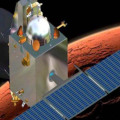The destruction of satellites is equally unprotected. Because the use of military personnel for peaceful purposes is permitted by the TMB, and the United States interpretation of peaceful purposes does not preclude military activity, the Space Force is possibly legal under international law. University of Cincinnati Law Review Blog Legal Scholarship for Students and Practitioners Online Photo by Brian McGowan on Unsplash Rachel Harp, associate member, University of Cincinnati Law Review As several nations continue to explore the new frontier of outer space, legal issues lurk in the evolving field of international space law. Significantly developed during the Cold War by the United Nations (“UN), space law covers mining, space traffic, space debris damage, militarization of space and more.
Article IV of the Outer Space Treaty states that the Moon and “other celestial bodies” should be used only for peaceful purposes. The treaty also prohibits the placement or use of nuclear weapons and weapons of mass destruction in Earth orbit, in a station or in a celestial body. While military personnel can be used for scientific exploration of space, the creation of the U.S. UU.
Space Force Probably Violates International Space Law. After taking a bioethics course and a health law course in the first year of undergraduate school, Rachel Harp decided to attend law school on a whim. Rachel will practice health advocacy after taking the bar exam and wrote many of her Law Review blog articles on topics. Outside of law school, Rachel loves hiking, camping, and reading.
While policymakers contemplate a United States Space Force, they must take into account the commitment of the United States to the Treaty on Principles Governing the Activities of States in the Exploration and Use of Outer Space, Including the Moon and Other Celestial Bodies (the Space Treaty Ultraterrestrial). A United States Space Force could, and probably would, violate international space law. In addition to motivating the reciprocal action of other states, it is almost certain that a United States Space Force would jeopardize the peaceful use of the status quo of space enshrined in the Outer Space Treaty. This comes when Congress passes the National Defense Authorization Act (NDAA), the annual bill authorizing Pentagon funding.
The text of the legislation can be found here. Huffman was joined by representatives Mark Pocan (WI-0), Jesús “Chuy García (IL-0), Rashida Tlaib (MI-1) and Maxine Waters (CA-4). This legislation is supported by Contributors for Common Sense, National Taxpayers Union, Peace Action, R Street Institute and Demand Progress. This will make outer space more dangerous and will inevitably trigger an arms race there, and some countries are considering improving their own space security.
Relying largely on the Antarctic Treaty of 1961, the Outer Space Treaty also focuses on regulating certain activities and preventing unrestricted competition that could lead to conflict. Roughly a decade after the treaty came into force, several other treaties were negotiated by the U. Representative Huffman's legislation would eliminate the Space Force before it's too late to do so, potentially saving taxpayers billions of dollars in the process. The Space Force (unfortunately) will not fight asteroids, aliens or space wizards (“the three great threats to Earth according to science fiction movies and television), but rather is destined to operate defensively to protect U.
Assuming that at least parts of the Outer Space Treaty and other sources of space law are applicable during an armed conflict, any obligations incompatible between space law and the LOAC should be resolved. The Outer Space Treaty, formally the Treaty on Principles Governing the Activities of States in the Exploration and Use of Outer Space, Including the Moon and Other Celestial Bodies, is a multilateral treaty that forms the basis of international space law. The Space Force also unnecessarily duplicated much of the existing work within the Air Force, including that of the Space Command, thus creating bureaucratic confusion and more waste and jeopardizing U.S. and allied national security.
Washington not only aims to protect its own satellites, but it also wants to strengthen its ability to detect the movements of other countries and launch military attacks from outer space. Missiles) are placed on board satellites (or in outer space) or that States use such weapons in self-defense. Among its principles, it prohibits states parties to the treaty from placing weapons of mass destruction in Earth orbit, installing them on the Moon or any other celestial body, or otherwise placing them in outer space. The creation of the United States Space Force and Washington's intention to deploy military forces in space have violated UN treaties on outer space.
The current evolution of military space power is intertwined with the rise of the “NewSpace industry”. However, the treaty does not prohibit the placement in orbit or in outer space of weapons other than nuclear weapons or weapons of mass destruction. Based in part on my chapter in The Future Law of Armed Conflict (soon to be published in the Lieber Studies Series), I describe the types of legal issues animated by military space activities (but I don't intend to resolve them in this short article). .
.



